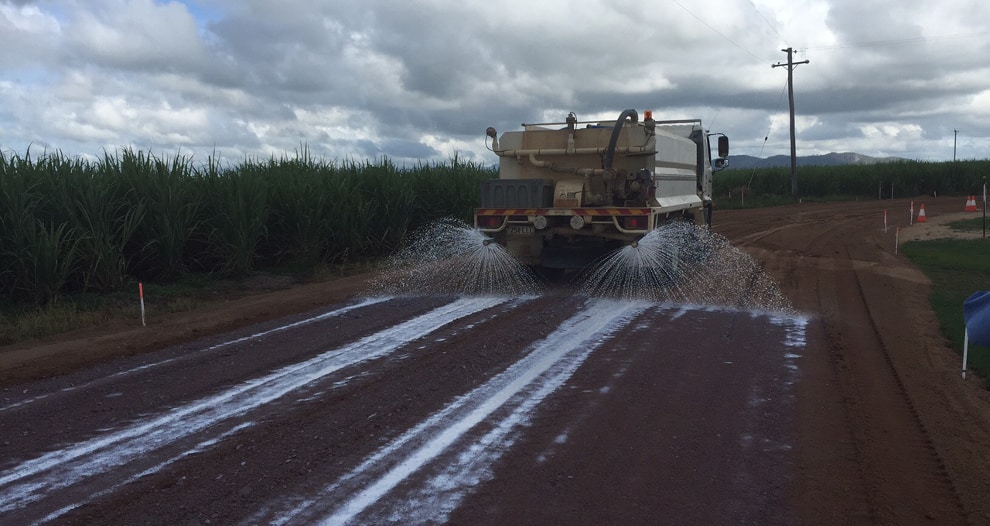
Although the benefits of a paved road, when compared to an unpaved, are numerous, the investment in converting a gravel road to a paved one is huge, so most states rely on maintaining existing gravel roads. Issues related to gravel roads are high rolling resistance, loss of material if the road surface is not stabilized and dust generation. Unpaved roads make a considerable share in world roads. For example, of the estimated 6.4 million kilometres of U.S. roads, nearly 50% are unsurfaced. This percentage is even higher in less developed countries. The untreated gravel roads cause air pollution, slows plant growth, and damages the road surfaces. According to an Iowa study, a single vehicle driving on an unsurfaced road once a day for a year will produce 0.6 tons of dust per kilometre. This means losing 60 tons of fine particles annually for each kilometre of a road with an average of 100 vehicles daily. Therefore, significant attention has to be paid to dust control on gravel roads and other associated issues.
Calcium chloride and magnesium chloride are most commonly used for dust control on gravel roads. Attracting moisture from the atmosphere helps form a crust and hold the road fines into the aggregate surface. Their performance depends on temperature, relative humidity, and traffic. Calcium chloride is corrosive to vehicles and application equipment and can create a slippery surface when applied. Since it is soluble in water, it is easily leached away. When dissolving solid calcium chloride to make a solution, high precautions are needed due to the generation of tremendous heat. Magnesium chloride has similar qualities to calcium chloride. However, it is more sensitive to weather conditions, needing temperatures above 20°C and relative humidity above 32% to be effective.
Asphalt has higher binding properties than chlorides. However, asphalt emulsions adhere to wheels which result in tracking of asphalt. This causes a nuisance for vehicle owners and nearby residents. Re-grading is more expensive and more difficult if the road has been treated with asphalt.
Lignin sulphonate is a waste product from wood pulp processing. The untreated material, known as red liquor or sulphite liquor, is often used for dust control on gravel roads located near paper mills. This material is highly acidic, foul-smelling, and very sticky, adhering to vehicles. Therefore, complaints are very common if this suppressant is used for dust control on gravel roads. Dried, processed lignin sulphonate does not have these problems but costs more. It can be effective on surfaces with very low fine content (4%-8%). Lignin is water soluble and thus can be diluted by heavy rains. Lignin treated roads are slippery when wet and very brittle when dry.
Global Road Technology created products that facilitate effective soil stabilization and dust control on gravel roads at the same time. GRT roads require no grading, while other dust mitigation methods incorporate grading three to four times a month. Effects of GRT treatment last for months and GRT products provide a cumulative effect, which means that each new application lasts longer than all previous applications of the product.
It is a common view that gravel and other unpaved surfaces can provide good, economical roads for only low traffic volumes. However, GRT succeeded to create unsurfaced roads competitive with the surfaced ones, such as spray chip sealed. Proven on various types of unpaved roads including gravel roads, GRT suppressants can improve rolling resistance properties. The average improvement of 0.7% is accomplished in comparison with an untreated surface, while an average improvement of 0.15% is achieved in comparison with conventionally sealed roads.
For more information on Global Road Technology, please Contact us.
Are environmental regulations, health and safety concerns or potential profit loss a concern right now?
Contact Us Now